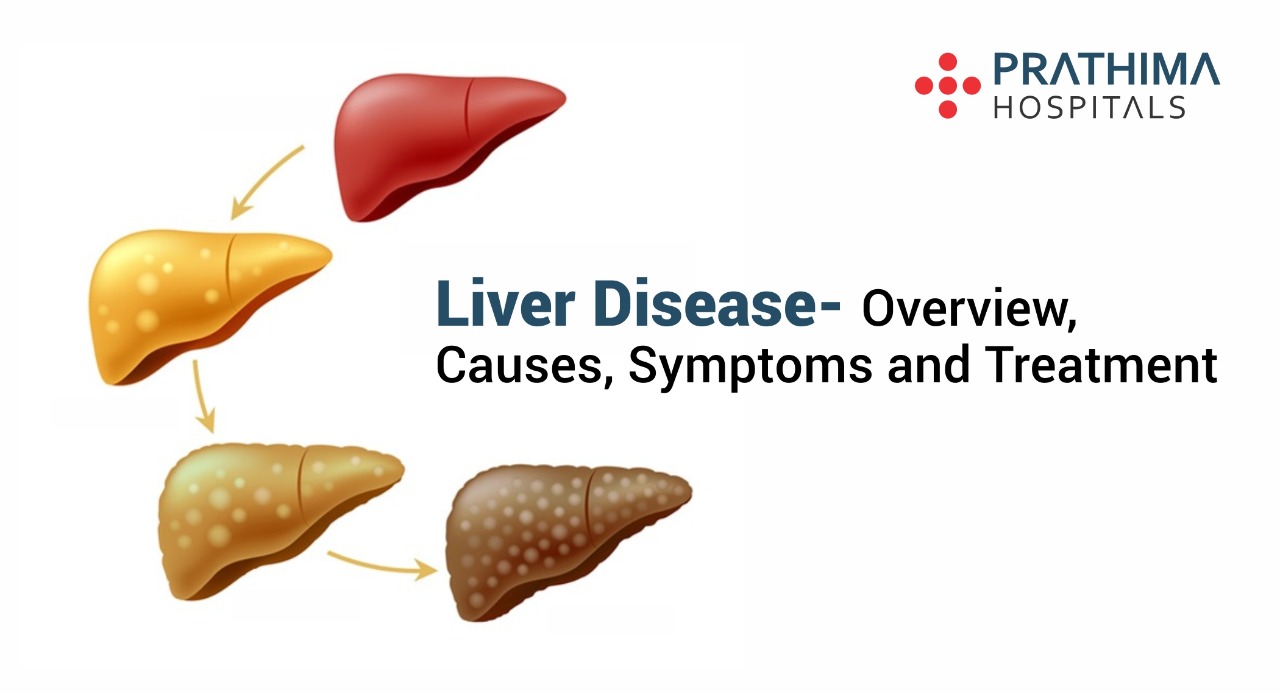Liver Disease- Overview, Causes, Symptoms and Treatment

The liver is the second largest organ in the human body, which weighs around 3 pounds. It is reddish-brown in colour, located on the upper right side of the abdomen. It performs more than 400 life sustaining functions. The liver has two large sections called the left lobe and right lobe, and it is medically proven that a person can live a healthy life with one part of the liver.
What is the Function of the Liver?
Liver performs many essential functions for the survival of the body, but few of the vital functions of the liver are:
- Production of bile: Bile is a fluid produced by the liver, and it breaks down fats and helps indigestion. Without bile, the human body can’t digest food.
- Filters blood: Liver filters blood by removing by-products and toxins such as alcohol and drugs.
- Blood clotting: Vitamin K is responsible for blood clotting, which is absorbed by bile.
- Storage of vitamins: It stores a significant amount of vitamins A, D, E, and K as a backup.
Liver Disorder:
In this disorder, a part of the liver or whole liver stops functioning properly. Sometimes it is genetic, and sometimes it is due to the damage.
Causes of liver disease
Some of the most common causes of liver disease are:
- Hepatitis: It is inflammation of the liver caused by a virus that attacks a person’s liver. Sometimes, Hepatitis is also caused due to consumption of toxic substances excessively, such as alcohol and drugs. There are five types of Hepatitis, referred to as type A, B, C, D, E, but only Hepatitis B, C, and D are contagious.
- Fatty liver disease: It is caused due to fat build-up in the liver. There are many causes for fatty liver disease, but some significant reasons are the enormous consumption of alcohol, foods high in cholesterol, diabetes, or high blood sugar.
- Autoimmune condition: In this condition, the immune system starts attacking healthy cells, which results in damage to the liver. In some cases, the immune system starts attacking the liver, which results in inflammation, and eventually, it starts affecting bile ducts.
- Genetic condition: Sometimes, the liver disorder is inherited from one of your parents.
- Hepatic cancer: Cancer that begins in liver cells. This condition is incurable, but treatment can help in adding a maximum of 5 years of life.
Symptoms of liver disease
Signs of liver diseases may depend on the type of liver disease. However, some common symptoms are:
- Swollen body parts
- Yellow colour of skin and eye are commonly known as jaundice
- Dark urine
- Decreases appetite
- Nausea or Vomiting
- Abdomen pain or weight loss
- Bruises
In some cases, people don’t even realize that they have the liver disease until they are at their last stage. So it is essential to understand your body and its symptoms.
When should you call for a doctor?
It is crucial to make an appointment with your doctor if you have any symptoms written above. At Prathima Hospitals, we provide the best liver care services that help you to deal with the complications of liver diseases.



